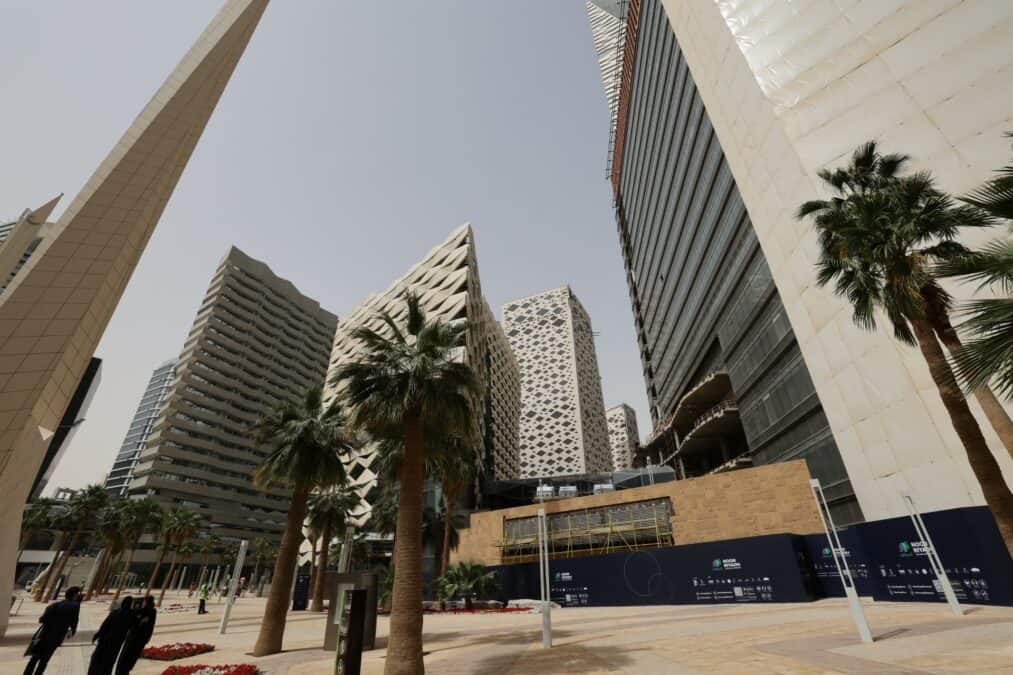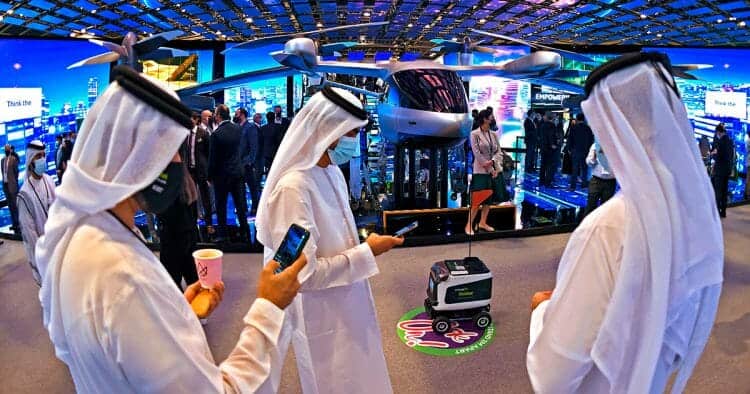For well over the past century, the Middle East region has always seemed to be at one defining moment or another. Unsurprisingly, the region is yet at another defining moment in its history as it tries to wrest its destiny from the grips of economic turbulence, geopolitical uncertainty, and technological disruption. In such times, the need for leadership, critical at any moment, is to define the future, and this can be acutely felt in business and economics.
From new tech to metamorphosing landscapes, ours is a region whose future depends on leaders who can not only navigate such a VUCA era but also help deliver prosperity. Staying ahead of the curve, remaining competitive and becoming a bigger center of gravity in global affairs, requires an attitude of proactiveness, anticipation and constant preparation not only to adapt, but to also make windmills in stormy times.
How can business leaders of the region, who have long been at the receiving end of change and who are increasingly facing the challenge of finding ways to remain competitive in a rapidly evolving market, leapfrog their current position to becoming net exporters of ideas and value? How can the region flip its position especially as many businesses are struggling to keep up with the rate of change?
Construct Empires of the Mind
Traditional wealth has been built on the development, trading, and ownership of physical goods. This meant access to raw materials, physical space and geography, supply chain development, and heavy investment in infrastructure and logistics. Naturally, the future will continue to need such components of life and drivers of the economy, but the way ahead is certainly different from the one behind us. Increasingly, the mind is the biggest soil that must be mined, sowed, and tilled. Industries of the future require ideas, creativity, intelligence, and collaboration. In this space, no nation or geography has a monopoly. All can play a role and have a shot at the prize. Gaining entry requires building the requisite infrastructure, such as a conducive environment, investment in education and R&D, and creating a safe space for experimentation and support, especially through the earlier stages.

Strengthen Understanding of New Technologies
One of the first steps that business leaders in the Middle East need to take to keep up with disruptions is to embrace digitalization and to strengthen their understanding of the new technologies and trends that are reshaping the world, this region included. This means keeping up with the latest developments in areas such as automation, AI, big data, machine learning and blockchain. Such technologies are seeping into more and more aspects of life, and certainly into the region’s economy, and it is essential for business leaders to understand how they can be leveraged to drive growth.
Cultivate a Culture of Innovation
What got us here will not get us there. In underdeveloped environments, bringing in tried and tested ideas is certainly a good first step for building a foundation, gaining experience, and creating momentum. We are past that, today. So, in addition to embracing digitalization, Middle Eastern business leaders must also focus on creating a culture of innovation. By encouraging creativity and experimentation in their businesses, leaders can create an environment where employees are able to explore new ideas and develop innovative solutions.
Promote an Environment of Risk Taking
Innovation and risk-taking go together. The thing about forging new paths is the absence of a playbook or a roadmap. We are at another Columbus moment in search of the new and unexplored (apologies to the Vikings). This means risk and being prepared to embrace failure and loss as part of the learning process. This can help to keep businesses ahead of the competition and contribute new avenues for growth and innovation. Middle Eastern business leaders have an opportunity to show courage and commitment in carving space, whether metaphorically on their P&L statements or physically in their own organizations to encourage and promote learning and taking risk.
Better Understand the Human Dimension
Any which way you cut it; business is people. It is about people, by people, and for people. There is no business that isn’t a people’s business, so let no sector claim monopoly here. Middle Eastern business leaders should also be investing in their people and cultivating a culture of learning and agility. There are no shortcuts here, and cultivating a spirit of continuous life learning is a critical ingredient, more so today. This means investing in employee development and coaching to ensure that they are equipped to anticipate, disciplined to apply themselves, and adapt to market changes. One of the fallouts of Covid is a refocusing on the individual’s value system and priorities on the one hand, and how the equation between the individual and employer has irrevocably changed on the other. We need business leadership that is committed to innovating in this space and adopting new approaches that unleash potential, just as they keep an eye on what is good for people.
Conclusion
Embracing change, adapting to it, and innovating are key qualities in the survival of species. In the Middle East, today, we find ourselves at yet another crossroads in which we are dared to step into the future. How will business leaders approach this?
We have an opportunity to become a more commanding center of gravity, proud of our heritage and confident in our purpose. Successful business leadership requires we innovate and embrace change. This means a commitment to seek paths untrodden, embracing new technologies, and being willing to take risks and experiment with new ideas and strategies. Leaders in the region must also be willing to take a longer-term view and focus on creating sustainable, long-term growth.
Kamal Dimachkie is a UAE-based business leader, mentor, consultant, executive leadership coach, and entrepreneur. He is an expert on Middle East communication and growth management.
The opinions expressed are those of the author and may not reflect the editorial policy or an official position held by TRENDS.

